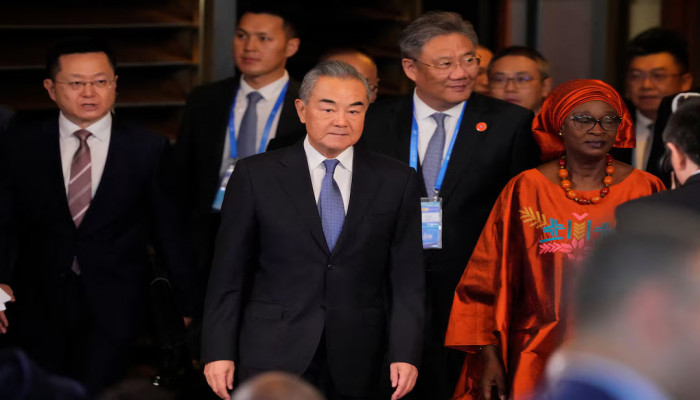China, Tanzania and Zambia sign MoU to revamp TAZARA Railway; Beijing pledges fresh investments in Nigeria
- In Reports
- 09:37 PM, Sep 04, 2024
- Myind Staff
China, Tanzania, and Zambia have signed a preliminary agreement to rehabilitate a decades-old railway, a move aimed at enhancing rail-sea transportation in East Africa’s resource-rich region, according to reports from Chinese state media on Wednesday.
President Xi Jinping oversaw the signing of a memorandum of understanding to refurbish the 1,860-kilometer (1,156-mile) Tanzania-Zambia Railway Authority (TAZARA) railway. The agreement was signed in the presence of the Tanzanian and Zambian presidents, who were in Beijing to attend the Forum on China-Africa Cooperation, according to the state-run Xinhua news agency.
The single-track TAZARA railway, constructed between 1970 and 1975 with an interest-free loan from China, provides a crucial cargo transport route from Zambia’s copper and cobalt mines to the Tanzanian coast. This route avoids South Africa and the former state of Rhodesia.
Commercial operations of the TAZARA railway, which was mockingly referred to as the “bamboo railway” by some Western governments at the time, commenced in 1976. The multi-year project involved the construction of two dozen tunnels and hundreds of bridges, carried out by tens of thousands of Chinese and African workers.
“China is willing to take this summit as an opportunity to make new progress in the revitalisation of the Tanzania-Zambia railway, cooperate to improve the rail-sea intermodal transport network in East Africa, and build Tanzania into a demonstration zone for deepening high-quality China-Africa Belt and Road cooperation,” said Xi, according to state media.
Earlier this year, the World Bank approved $270 million in financing to enhance connectivity between Tanzania and Zambia and stimulate regional trade. Additionally, in February, China proposed a $1 billion investment to rehabilitate the rail line through a public-private partnership model.
Following a meeting between President Xi Jinping and Nigerian President Bola Tinubu in Beijing, China pledged to encourage its more influential companies to invest in Nigeria. In response, Nigeria expressed openness to Chinese investment in its factories and development of energy and mineral resources.
A joint statement released after the meeting highlighted China’s intent to support Nigeria’s economic diversification and growth through its e-commerce and logistics sectors. This discussion came ahead of a summit of 50 African nations in Beijing, which President Xi described as a key opportunity to strengthen China-Africa relations.
“China and Nigeria, as major developing countries, strengthening strategic coordination, will inject fresh impetus to China-Africa relations in the new era and spearhead common progress among Global South countries,” Xi said.
China pledged support to Nigeria in enhancing its military technology, equipment, and intelligence capabilities. Both countries agreed to collaborate on maintaining peace, security, and stability in the Sahel region, the Gulf of Guinea, and other areas. Additionally, they committed to working together on intelligence-sharing to combat money laundering and terrorist financing. The two sides also plan to strengthen cooperation under China’s Belt and Road Initiative, as well as in human resources development and nuclear energy, according to a Nigerian government spokesperson.
The Belt and Road Initiative has already led to significant infrastructure developments in Nigeria, including the construction of a deep-sea port and rail lines.
“This comprehensive strategic partnership should result in robust development, stability, and security in the West African sub-region,” Nigeria’s Tinubu said.
China is Nigeria’s largest bilateral lender, with loans totalling $5 billion as of the end of March, according to data from Nigeria’s Debt Management Office.
Image source: Reuters







Comments